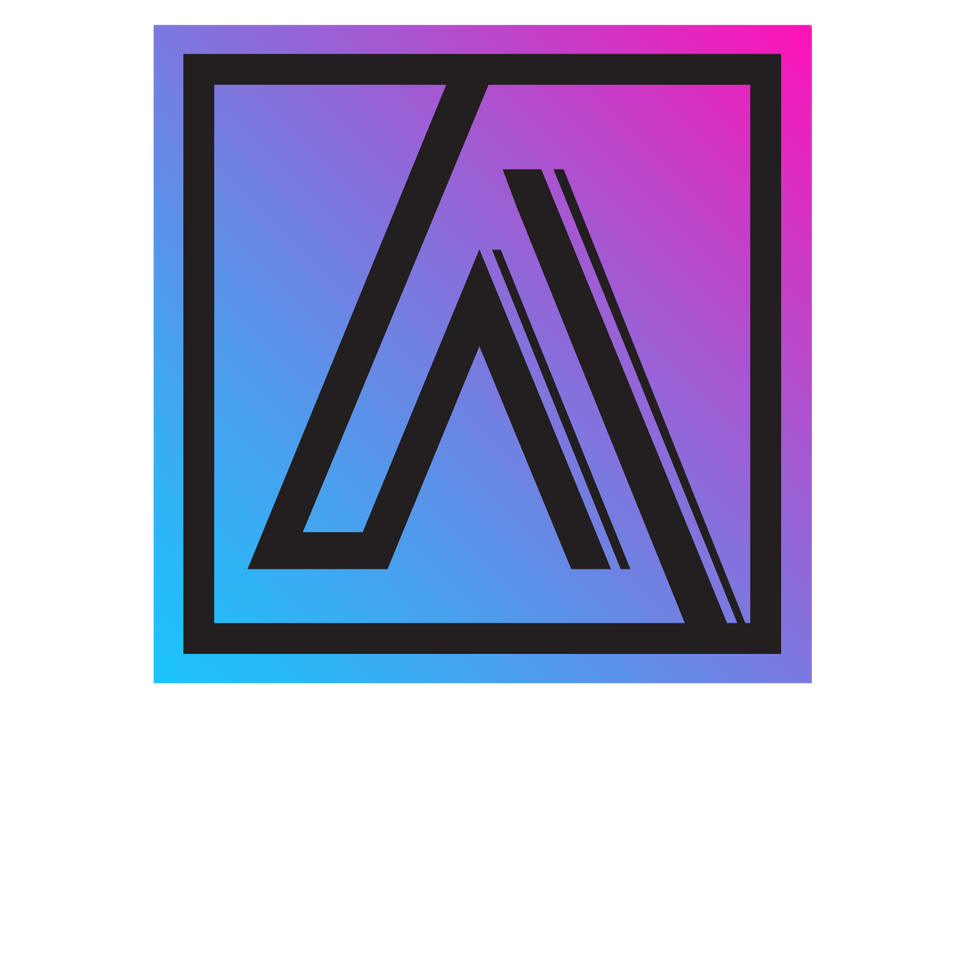
This article is for educational purposes only. Nothing in this article shall constitute legal or other professional advice or an opinion of any kind. Please contact Amar-VR Law, or your own legal counsel, if you have any questions regarding a specific legal issue.
When you pour hours of your time (and potentially thousands of dollars, if not more) into creating a high-quality Video Game, some of the most devastating news to receive is that your work has been used in some way without your authorization. The only thing worse… not knowing what to do about it!
Luckily for Video Game developers in Canada, you have Copyright protection in most cases, even if you haven’t done anything to make it official with the government. The best way to protect your work, and your studio’s interests, is to understand exactly how Copyrights can safeguard your creative assets, and what to do when someone uses your work without permission.
Keep reading for an in-depth explanation of Copyrights in the Canadian Video Game industry, and what they mean for your team.
What is a Copyright?
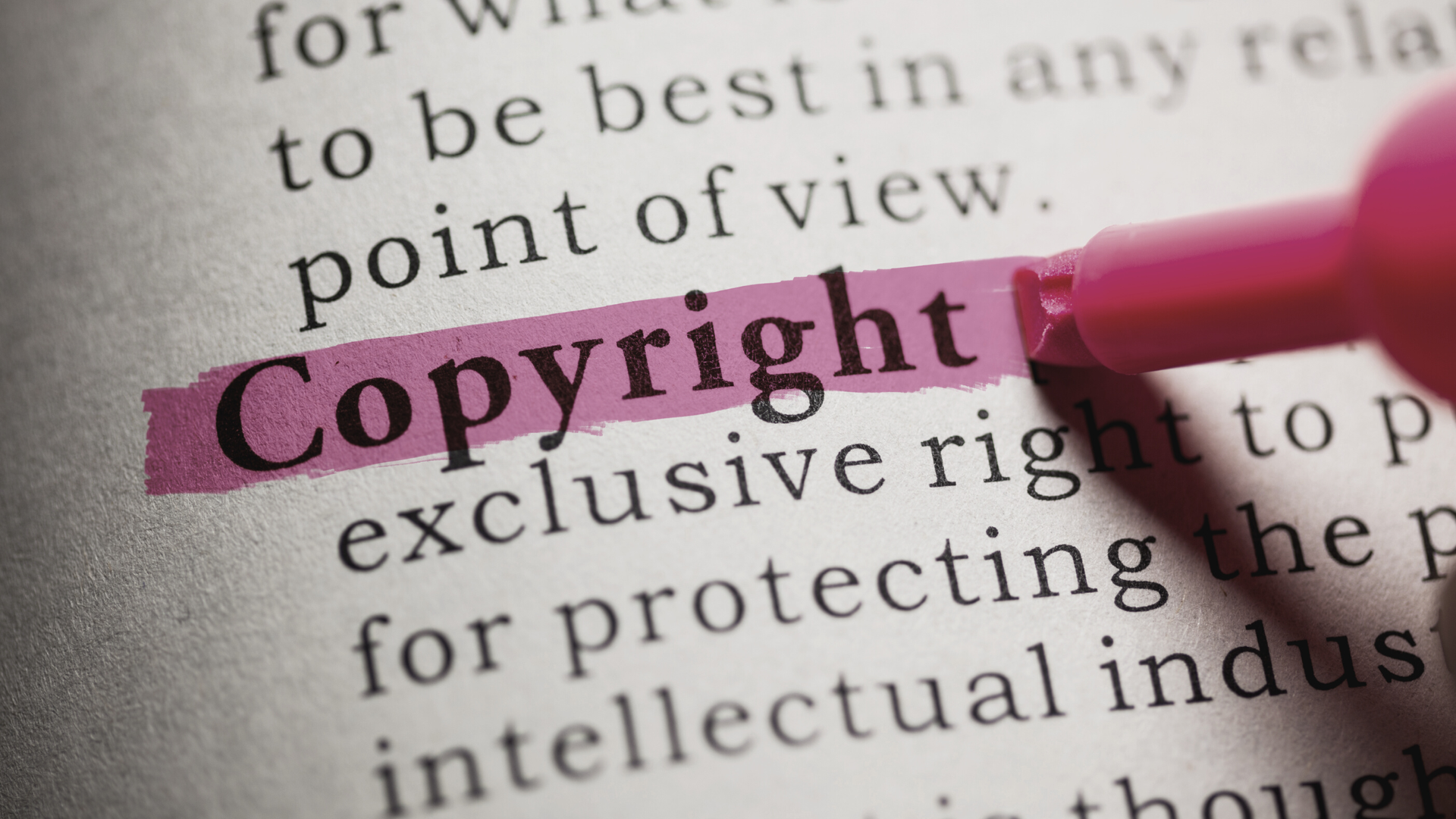
Let’s start with the basics.
A Copyright is an exclusive legal right, held by a Copyright owner, to print, publish, perform, film, or record literary, artistic, or musical material. It also gives the Copyright holder the right to authorize others to use their work in these ways.
In the Video Game Industry, Copyrights pertain to all of the creative works that make up a finished Video Game. For example, the soundtrack, storyline, dialogue, and artwork are all protected by Copyrights. If someone or some company reproduces your game or a major asset of it without your consent, they’re stealing your Copyright. This is called ‘Copyright infringement’, and you can take legal action when this happens.
Simply put, a Copyright protects a creative work from being produced or reproduced without permission.
Who Holds The Copyrights?

When you produce a creative work, you will hold the Copyrights as the original creator. Even without registration, Copyrights exist as long as some basic conditions are met (though registration is certainly recommended). More on that in the next section.
The Copyright holder can sell or transfer ownership of the Copyrights to another party if they choose, but unless they do so, others are not able to use that creative work for their own purposes. Copyright holders can also license their work to other parties, meaning that upon receiving a license, the other party can use that creative work within the terms of the License Agreement.
When creative works from multiple artists are used to create one end product, there will be numerous layers of Copyright ownership. The artists will retain the Copyrights to their contribution to the final work, but the Video Game owner will hold the Copyrights to the finished product. An important point to note here is that employees you’ve hired to develop a Video Game do not hold Copyrights to the work created.
The Copyright Act of Canada & 3 Criteria

Copyrights are protected by The Copyright Act of Canada, first passed in 1927 — though significant amendments have been made as technology, and creative works, have evolved over time.
The Copyright Act of Canada prevents individuals from getting around protective measures that you have in place to restrict access to your creative assets, and protects you from the unauthorized use of your game.
There are 3 criteria your game needs to meet to be protected by Copyrights:
- Your game must be a work of authorship
- It must be original
- It must be fixed in a tangible medium of expression
What is a work of authorship? Any product of creative expression, such as literary work, music, drawings, computer programs, or a similar creation (published or unpublished), is a work of authorship. Since your video game is a product of creative expression, it is a work of authorship.
To satisfy point 2, your work must be original. This means your game must not be a complete copy of an earlier work, and must have at least a small, yet significant, amount of creativity involved. So as long as you created your own game rather than copied one, you will most likely meet this criterion.
The work must be fixed in a tangible medium of expression. This means that a version of the work must be recorded or documented in some permanent form that can be viewed, communicated, or reproduced. It can’t just be an idea in your head, it has to have a tangible and reproducible form. Since your game will be interactive, it is fixed in a tangible medium of expression.
If your game has met all of these criteria, then you already have the basic Copyrights. This alone may be enough to protect your intellectual property, but it is good practice to register your Copyrights to give you that added protection and best defend your artistic rights in the case of Copyright infringement, or if someone makes the same claim against you.
Conclusion
Understanding Copyright law in Canada is a must for Video Game developers. Failing to do so can be a costly mistake.
A Video Game Lawyer is an essential part of your team if you plan to publish or sell your Video Game. The money you save by handling your own Copyrights probably won’t be worthwhile if you end up in court due to an oversight or misunderstanding of Copyright law that could have been easily avoided with some legal guidance.
Contact Amar-VR Law if you have questions about how Copyrights affect your Video Game, or if you need assistance solving a Copyright issue that’s already come up.

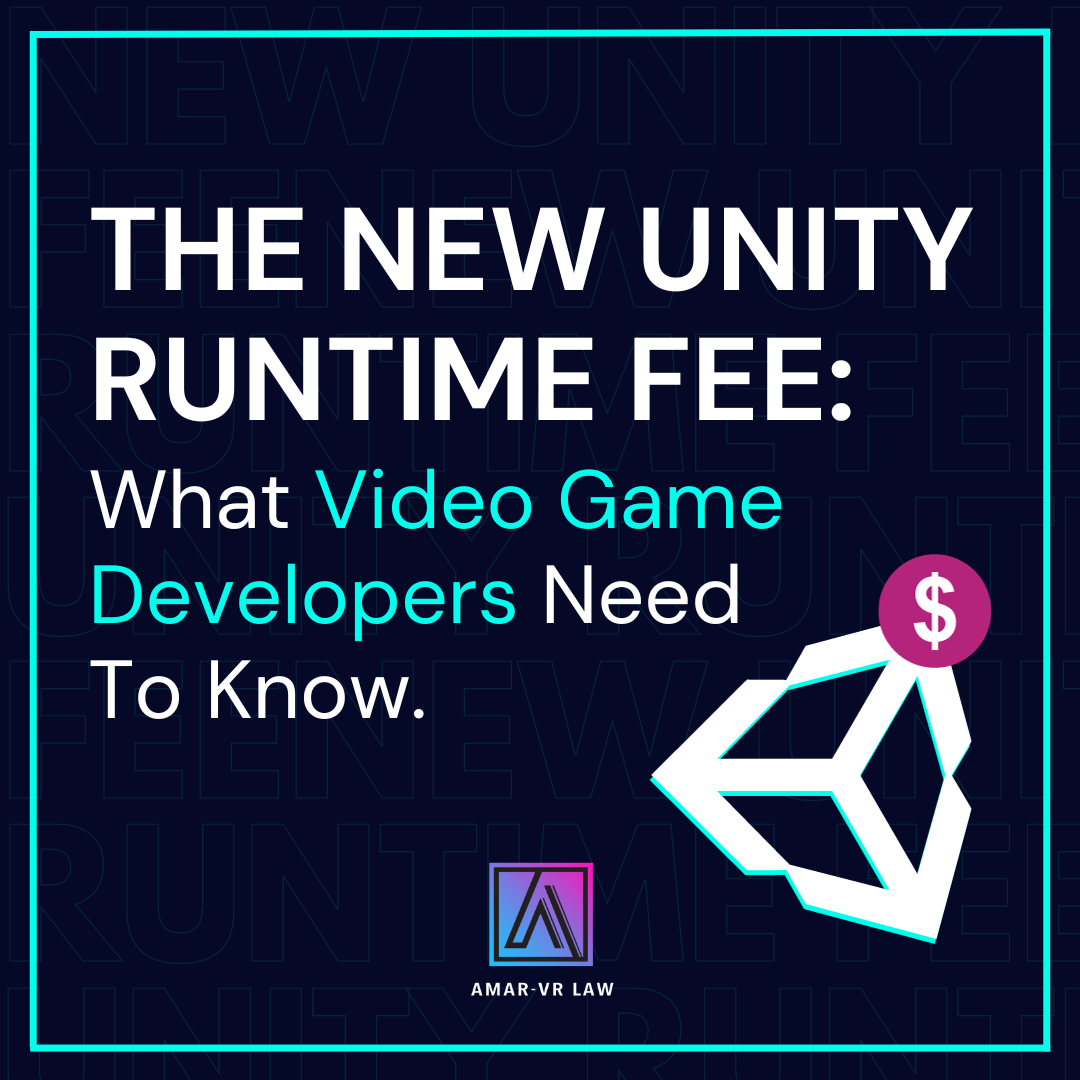
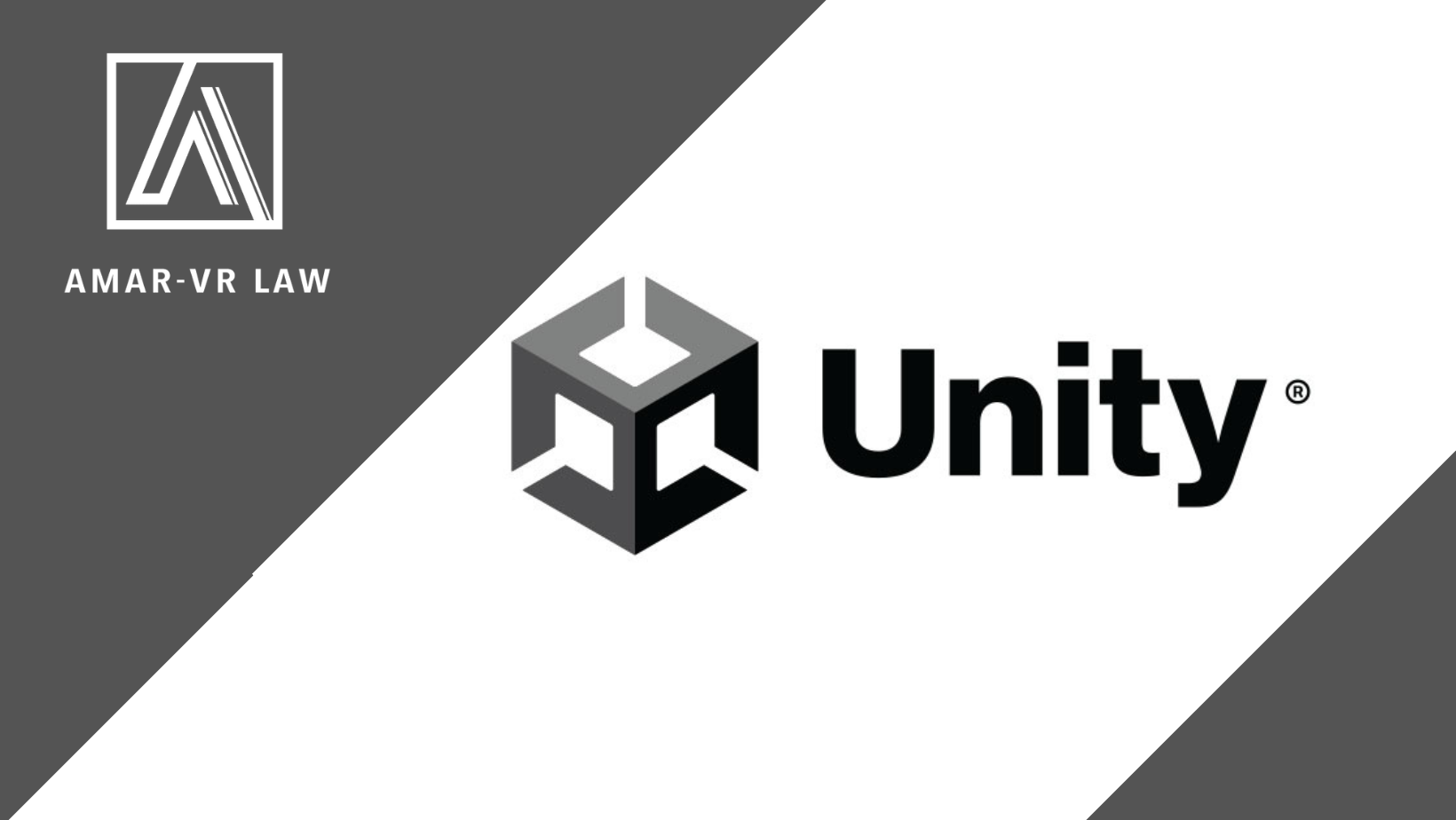
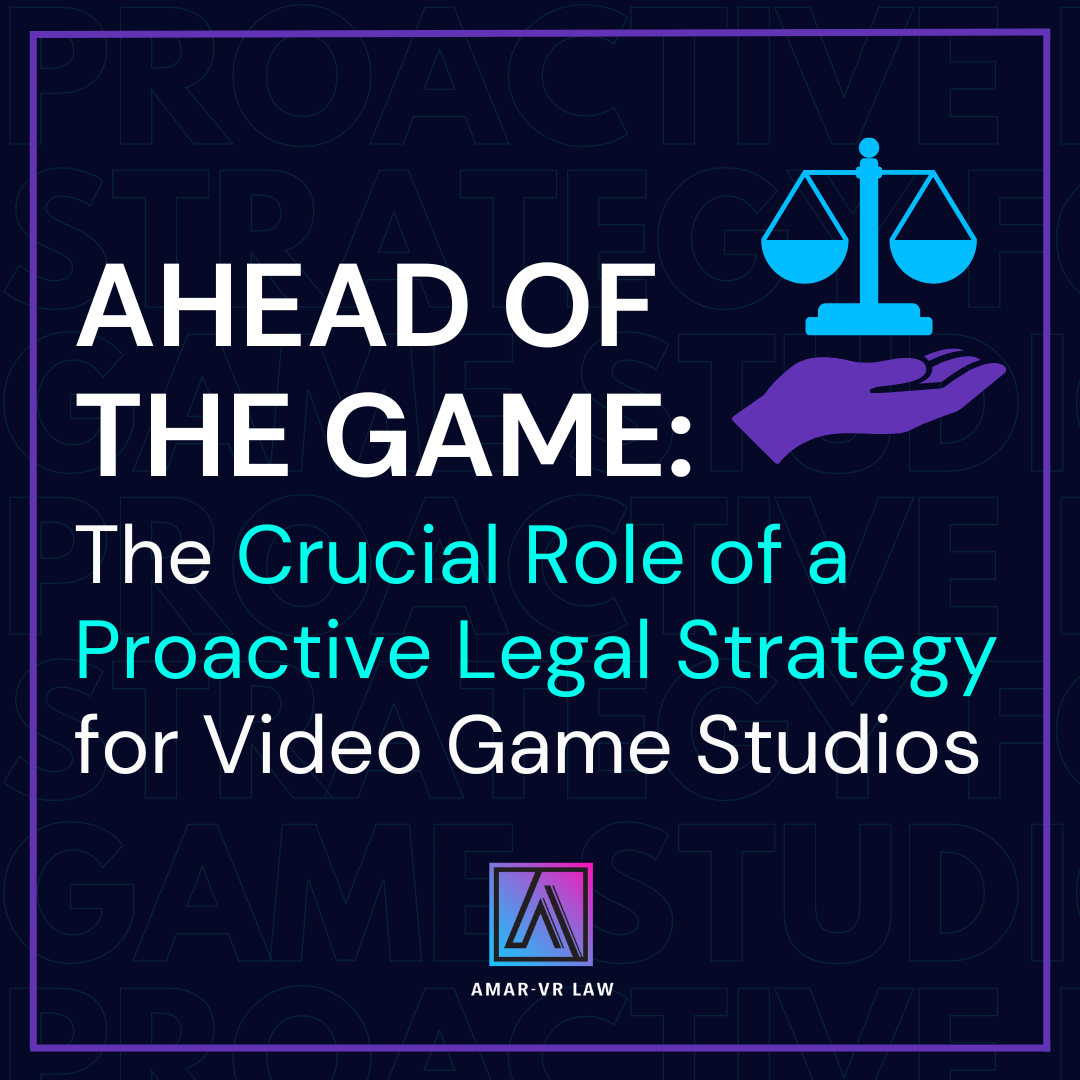
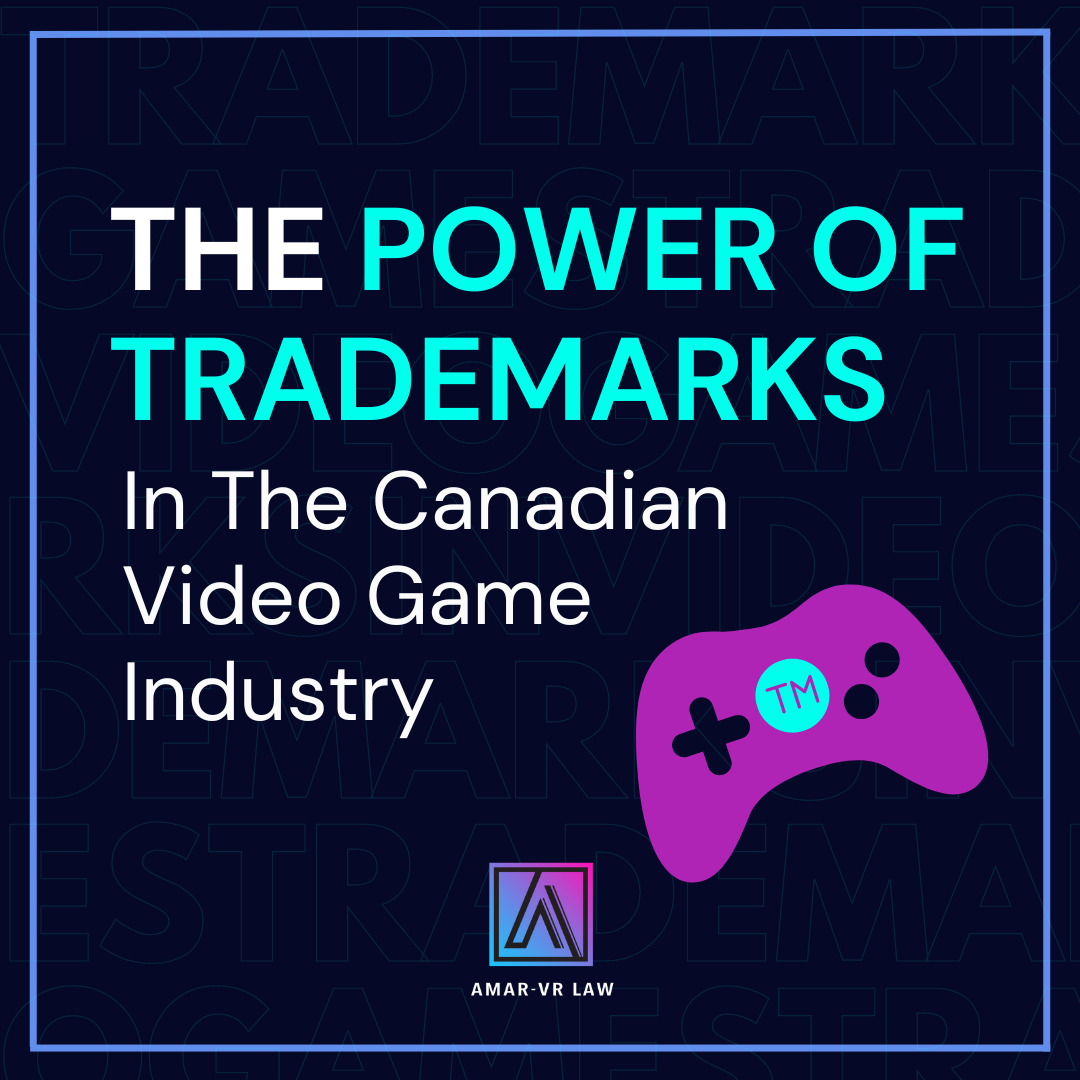
Address:
100 King Street West,
Suite 5700
Toronto, ON
M5X 1C7
Email: hello@amarvrlaw.com
Phone: 289-919-5929
Business Hours:
Monday: 10:00 AM – 6:00 PM
Tuesday to Friday: 9:00 AM – 5:00 PM
Saturday 9:00 AM – 12:00 PM
Address:
100 King Street West,
Suite 5700
Toronto, ON
M5X 1C7
Email: hello@amarvrlaw.com
Phone: 289-919-5929
Business Hours:
Monday: 10:00 AM – 6:00 PM
Tuesday to Friday: 9:00 AM – 5:00 PM








